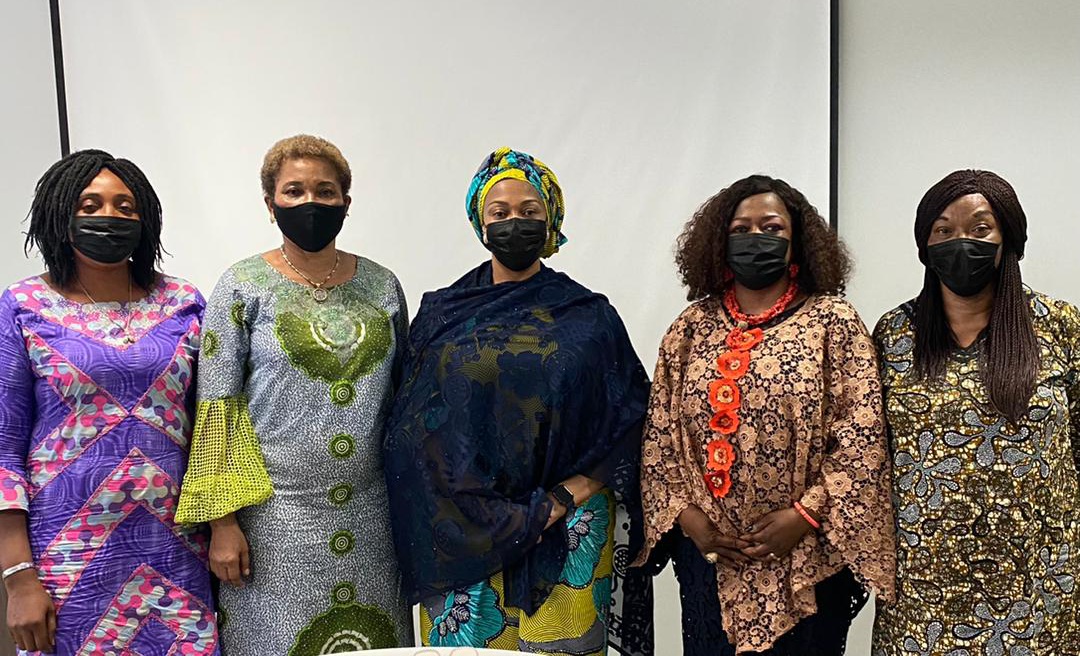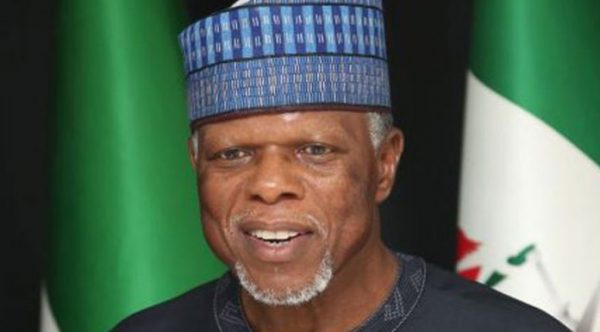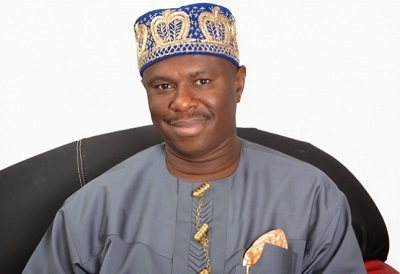Buhari overlooks N33tr debt burden, seeks fresh N2tr loans

• PDP, economists kick as party urges NASS to probe alleged looting of loans
• About 85% of matured loans are refinanced, economist suggests
• ‘You can’t take more when 80% of revenue goes into debt’
• Lagos to borrow N25b as Sanwo-Olu signs green bond market agreement
Amid concerns over debt overhang, President Muhammadu Buhari has requested the Senate to consider and approve an external borrowing plan amounting to about N2.5 trillion to fund projects captured under the 2018-2021 borrowing projections. If approved, the country’s documented national debts will balloon to over N35 trillion.
The Senate President, Ahmad Lawan, read the letter dated August 24, 2021, during plenary in Abuja, yesterday.
Buhari, in the letter, explained that the projects listed in the 2018-2021 Federal Government Borrowing Plan were to be financed through sovereign loans from the World Bank, French Development Agency (AFD), Export-Import Bank of China, International Fund for Agricultural Development (IFAD), Credit Suisse Group and Standard Chartered/China Export and Credit (SINOSURE).
The amount is in the sum of $4.05 billion, €710 million and a grant component of $125 million. The money, the President explained, would be used to fund federal and state government projects across key sectors such as infrastructure, health, agriculture and food security, energy, education and human capital development, as well as the COVID-19 response initiative.
Despite mounting debt, official documents reviewed by The Guardian suggest that the Federal Government is aggressively pursuing a longer-term debt programme that will push the maturity of currently-secured loans to between 10 and 30 years.
Refinancing short-term loans, according to the official documents, has become a strategic part of the current national debt management approach.
Whereas there is no official information of the portion of matured debts that are being refinanced, a professor of applied economics and debt management consultant, Godwin Owoh, said it would be in the region of 85 per cent.
The Debt Management Office (DMO), in the 2019 Annual Report and Statement of accounts released yesterday, admitted that short-term loan refinancing with longer-term aligns with the 2016 – 2019 Medium-Term Debt Management Strategy and that its achievement in that context is a major improvement on the debt management approach.
“The strategy of borrowing long, and restructuring of the domestic debt portfolio by refinancing matured treasury bills with longer tenor securities lengthened the Federal Government bond yield curve up to 30 years within the period and was critical to the successes recorded,” DMO said in the appraisal.
Top in the DMO agenda is keeping the average time-to-maturity (ATM) for the total public debt portfolio at a minimum of 10 years.
In principle, long-term loans are recommended for growing entities that aspire for stable planning and growth. But experts are worried that extending the maturing dates of Nigerian debts is tantamount to postponing the proverbial evil day.
This is as it came to light on Monday that the Federal Government committed a total of N11.679 trillion into debt servicing, while N8.31 trillion was expended on capital/development expenditure between 2015 and 2020.
A breakdown of the amount showed that in 2015 and 2016, N953.620 billion and N1.475 trillion, respectively, were spent on debt service, while N1.841 trillion and N2.203 trillion went into same line item in 2017 and 2018, respectively.
The figures were unveiled in the “Analysis of the 2022-2024 Medium Term Expenditure Framework and Fiscal Strategy Paper,” presented in Abuja by the Centre for Social Justice (CSJ).
The sums of N2.254 trillion and N2.951 trillion went into debt service in 2019 and 2020, respectively. The N11.679,845,205, 997 five-year debt service profile (2015-2020) also translated to a yearly average of N1.386 trillion.
At the presentation, the Lead Director of CSJ, Eze Onyekpere, whose organisation has been in the forefront of the campaign for fiscal discipline and transparency in public affairs, stated that Nigeria’s debt had also been increasing in double digits year-after-year since 2015, with the highest increase recorded between 2015 and 2016.
Citing DMO statistics, Onyekpere observed that public debt stock stood at N12,603 trillion in 2015, N17.360 trillion in 2016, and N21.725 trillion in 2017. In 2018, 2019 and 2020, public debt stood at N24.387 trillion, N27.401 trillion, and N32.915 trillion, respectively.
The highest increase occurred between 2015 and 2016. Between 2015 and 2020, Nigeria’s public debt increased by 161 per cent, indicating a yearly average increase of 37.74 per cent.
YESTERDAY, a financial expert and economist, David Adonri, said the government, by its tendency towards fresh debts, “is mortgaging the future of the country”.
His concern, like every other critic of the unbridled debt appetite of the current administration, is anchored on the poor investment in human and physical infrastructure.
Nigeria currently sits on the bottom of the global Human Capital Index. Its per capita investments in health and education – two critical sectors that grow human capital – is among the lowest in Africa, with South Africa and Egypt, its key economic competitors, far ahead.
Dr. Muda Yusuf, an economist and former director-general of the Lagos Chamber of Commerce and Industry (LCCI), said the growing stock of debt is a cause for concern as the cost of servicing it is unsustainable.
“The current levels of debt are already at an unsustainable threshold. If over 80 per cent of revenue is used to service debt, then it is about time to slow down on debt accumulation. From reports, this request is new, as it was not covered in the original borrowing. It is an addendum to the original plan, which had already been approved.
“Of course, there is merit in borrowing for infrastructure development, but even at that, the capacity to service the debt sustainably should be a critical consideration. The risk is that at this rate, part of the borrowing will inevitably be used to fund recurrent expenditure. Already, actual revenue can hardly cover the recurrent budget. The risk of ending up in a debt trap is quite high.”
The government’s current revenue profile is, indeed, abysmally low even as the future doesn’t look bright. The state governments are up in arms over who controls the value-added tax (VAT), which is the government’s major cash cow. Rivers State had won in litigation while the Federal Inland Revenue Service (FIRS) appealed and lost in its bid to secure a stay of execution.
If the Supreme Court rules in favour of states, the Federal Government could lose a substantial part of its earnings to states. This could worsen its fiscal position and impact its ability to service or repay debts.
THE opposition Peoples Democratic Party (PDP) has rejected moves by the President Buhari-led All Progressives Congress (APC) administration to further mortgage Nigeria with a fresh N2.66 trillion ($4 billion and €710 million) external loan. The party expressed fears that “with the reckless borrowing by President Buhari and the APC, Nigerians might eventually not have a nation and a patrimony that they can freely call their own, after the APC, which has less than two years to vacate office, leaves government.”
The PDP lamented that with the N33.107 trillion debt already accumulated by President Buhari and the APC, an addition of N5.62 trillion borrowing proposed by Buhari for the 2022 budget and now a fresh N2.66 trillion external loan, the APC will be hanging N40 trillion debt on the nation, with no clear-cut repayment plan.
A statement by the National Publicity Secretary of PDP, Kola Ologbondiyan, raised the alarm that “the debts that APC is hanging on Nigerians are for nebulous projects, whose scope, utilities, locations and contractors are largely vague; a development that validates apprehensions of a huge swindle on our nation at the expense of innocent Nigerians, including generation yet unborn.”
The statement reads: “Our party holds it as an act of wickedness that individuals who know that they will be leaving office in less than two years will be accumulating debts instead of seeking ways to reduce the liability they have brought upon our nation.
“The APC knows it will not be around after May 29, 2023. That is why it is pushing our nation into deeper economic quagmire with foreign loans, which are largely diverted to personal pockets of their corrupt leaders.”
The PDP noted that “given their incompetence, corruption and manifest nonchalant attitude to the plights of Nigerians, the APC and its administration have not shown any commitment towards wealth creation as expected of any responsible government.
“Rather, they have resorted to reckless borrowing, pillaging of our national vault and suppression of our productive sectors; a development that have crippled our Gross Domestic Produce (GDP) to the extent that our naira, which the PDP handed over to the APC at N167 to a dollar, has now collapsed to a dismal and all-time low of N557 to a dollar under the APC.”
The PDP called on the National Assembly to save the nation by rising above partisan sentiments to reject this latest request by President Buhari for a fresh foreign loan.
The party also urged the National Assembly to immediately “commence an open investigative hearing on all the loans collected by President Buhari.”
The President, in the fresh request, claimed projects to be funded with the fresh loans across the six geo-political zones of the country would bring about employment generation and poverty reduction as well as protection of the most vulnerable.
MEANWHILE, Lagos State has become the first sub-national government to activate the framework for unlocking of the $1 trillion Nigerian Green Bond Market Development Programme to finance key infrastructure projects. Governor Babajide Sanwo-Olu, yesterday, signed a Memorandum of Understanding (MoU) with FMDQ Group and Financial Sector Deepening (FSD) Africa, which are the programme’s implementing partners on the proposed N25 billion (over $60 million) financing.
In a statement, the event, held at the State House in Marina, came less than 24 hours after Lagos was upgraded to AAA(nga) rating from AA+(nga) by Fitch International for the state’s good standing on debt sustainability and resilience.
Sanwo-Olu said the green bond programme, being supported by the UK Agency for International Development (UK Aid), would raise the capacity of the state to deliver more key infrastructure and social projects that would keep Lagos on the path of prosperity.
Launched in 2018, the Green Bond Market Development Programme is to facilitate development of a green bond market to support broader debt capital markets reforms that will impact the sovereign and non-sovereign bond markets in the country.
Sanwo-Olu said the MoU was the crucial first step being taken by Lagos towards creating viable financing option for future green and sustainability projects. The funding opportunity, he said, will advance adoption of innovation and technologies to provide green jobs, thereby promoting economic and climate resiliency.
Commissioner for Finance, Dr. Rabiu Olowo, said Lagos had 20 years experience in raising bonds, assuring implementing partners and capital market operators of the state’s commitment to the terms highlighted in the framework.
Chief Executive Officer of FMDQ Group, Mr. Bola Onadele, said Lagos had built reputation and “incredible potential” for catalysing broad-based sustainable development, which explained the partners’ readiness to support the State in unlocking the capital to fund key projects.






